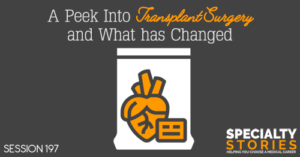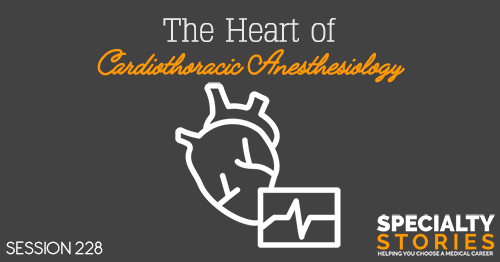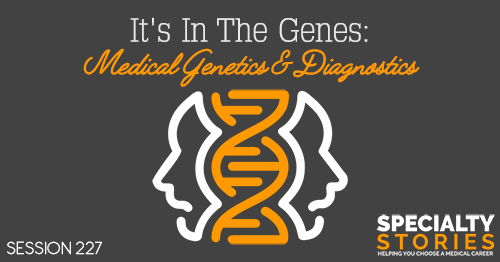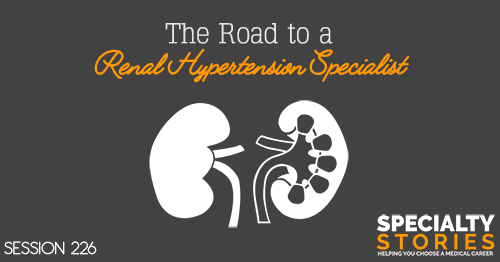Apple Podcasts | Google Podcasts
Session 197
Dr. David Mulligan is an abdominal organ transplant surgeon at Yale. Listen to his journey and what has changed with transplant surgery because of COVID-19.
For more podcast resources to help you with your medical school journey and beyond, check out Meded Media. Also, check out eshadowing.com to earn shadowing hours by joining us live every Monday at 8pm Eastern.
Listen to this podcast episode with the player above, or keep reading for the highlights and takeaway points.
[01:12] Interest in Transplant Surgery
David was a science and math geek in high school and has always known he wanted to gravitate to a field that combined all those things. He went to college and ended up in a liberal arts college that had a major in chemistry and biology. But he did theology and philosophy as well as history and music. So he got exposed to a lot of different things which made him well-rounded and connected to a lot of different people and understand where they come from.
He also wanted to be a surgeon because he loved doing things with his hands and repairing things. And what appealed to him was the concept of being able to cure a disease or fix a disease rather than just treat it with medicines.
He initially got into urology, and he realized he liked taking care of really complex ill patients as well as the intensity of ICU care and critical care. At that time, he got to see some liver and pancreas transplants, as well as the kidney transplants, which he was interested in.
So after he finished his residency in urology, he got double-boarded in general surgery and then off to a transplant fellowship.
'You have to be willing to explore and to keep an open mind and just try to be adaptable and adjust to whatever comes your way.'Click To TweetDavid believes it’s more important to be happy and enjoy what you want to do every day than it is to try to fit yourself as a peg into a hole and not really enjoy what you want to do. Keep an open mind and keep your concepts of the things wide open so you can really explore what gives the most meaning to you.
[05:30] The Biggest Myths or Misconceptions Around Transplant Surgery
'Many people look at transplant surgery as a super subspecialty that takes a lot of years to train.'Click To TweetDavid says one of the common misconceptions around transplant surgery that he hears from most students is having a horrific lifestyle. And that if you’re a woman, it’s going to be impossible to have a family if you’re going into transplant surgery. And this is not true.
Many people feel it’s extremely difficult and it would be hard to get into. And many people aren’t interested in doing it because the jobs are scarce. And those are not true.
David explains things have changed nowadays in the past three to four years. They’re now weeing a broader allocation system for different organs. And they’ve got much broader distances that they share organs.
And so, they find that rather than sending teams from the recipient hospitals out to the donor hospitals, they’re coordinating with organ procurement organizations in those farther off areas.
They coordinate with the local centers or staff surgeons to recover organs, and a lot of pictures and data are sent back to them. And so, organ recovery happens real time. And in fact, COVID has accelerated the whole process as they have found a real acceptable means of interacting with other centers in a safe way.
[10:07] Typical Day
As the director of the transplant program, David has a team of six surgeons and they take rotations on various transplant services.
They’re either doing liver or kidney, pancreas, and doing donor service, or doing clinic and seeing patients coming in for new visits or for follow up visits for the transplants in all the abdominal organs.
David starts his day at 5:30 in the morning for his exercise and then starts his day by 7 am, going into meetings.
They currently have a lot of hybrids with their conferences. And so rather than meeting together in a conference room, they’re doing Zoom conferences. Many of which start at 7. Then he goes to patient care if he’s on service and makes rounds with the rest of the team using a multidisciplinary approach.
'One of the neat things about transplant, everything we do is not as an individual practitioner, but we do it with a team of other providers.'Click To TweetDavid also serves on the governing board of The American Association for the Study of Liver Diseases (AASLD). They work in a lot of domains over patients with liver disease all around the country and the world.
[17:09] The Training Path
When you finish medical school, you go into surgery. In transplant surgery, the typical path would be to do a general surgical residency for those who wish to do abdominal organ transplantation.
The residency takes five to six years depending on whether you go to a program with a research year built into it or not. After which, there’s two more years of fellowship in surgery training, which is now board-certified being part of the American Board of Surgery as a certified specialty.
There are also specialty track programs where they’re already an integrated program. And they can go right into cardiac surgery after an internship that’s built in as an integrated surgical training program.
Many of those programs will have the training built in with cardiac surgery or thoracic surgery residency programs. A few still do a general surgery training followed by a cardiac surgery residency. And then, if they’re interested in pediatric heart or lung transplants, they could also specialize in those.
Overall, David explains you’re looking at a commitment of at least 7 to 9 years. In his case, it was even 10 years because he did two residencies as a urology residency and a general surgery residency plus two years of transplant fellowship.
David adds that most transplant surgeons are trained to do liver, kidney, pancreas in adults and children at most of the major centers. Some may not get much training like multi visceral transplants that include intestines. They’re not exposed to that as much and so they may only do kidneys and livers.
“The largest number of organs that are transplanted across the board are kidneys.”Click To TweetSince kidney transplants have the most number of transplants, some centers only do kidney transplants. And so, if you train there, you’re only going to get exposed to kidneys.
In most of the training, it includes livers and pancreas. And so a liver, kidney, pancreas transplant training would be the most common abdominal organ training program. Then what you do from there when you look for a job, and where you practice is going to depend on what’s available.
[21:45] Message to DO Students
Being a DO is not something that’s being looked down upon when it comes to transplant surgical fellowships. So David says he has never encountered any negative bias towards DO.
In fact, there are a lot of principles of osteopathy that are taught in osteopathic medical schools with those principles applied to transplant patients.
'There's just everything in medicine, all encompassing in this whole field of solid organ transplantation.'Click To TweetDavid adds Transplant Surgery is a fascinating field and a young field at that. And so there are so many opportunities to be had as it keeps growing and it’s helping people with extremely amazing outcomes.
Unfortunately, the only barrier they have is not enough organs to do these life-saving transplants. But they even have the capacity to do living organ donation, which is something David specializes in, specifically, living liver transplantation.
[24:50] The Most and Least Liked Things
David likes the challenge of it while being one of the most gratifying fields he has been exposed to. You’re literally helping patients who may be at death’s door. And you can restore their loss of organ function with an operation and good medical care with a team. And it’s so gratifying to see them recover completely from horrific disease and be well again.
“You see a patient completely turn around and walk out of the hospital just a week later, it's just amazing.”Click To TweetOn the flip side, what he likes the least are the demands of complicated cases. For instance, when they decompensate to the point where they don’t make it and you’re not going to be able to do a transplant, you have to have those hard conversations with the family.
[26:41] Major Future Changes Coming into the Field
David explains they’re on the verge of using ex vivo perfusion devices, which are biological pumps that can take human organs.
You can put the organ on the system that perfuses the organ with either special oxygenated solutions or even blood. This keeps the organ functional. Then you can study how that function works for hours to come before you would transplant it. The organs can even be modulated with nutrition and with other agents to try to improve the organ and make it better than it was when it came out, and then transplant it.
They’ve also been doing a lot of work with 3D bioprinting and tissue engineering. They take stem cells and try to repopulate pluripotent stem cells in ways that they can become organs. Those organs will regenerate in ways that they can actually take someone’s own cells. And then within a few weeks, grow those stem cells into a functional organ replacement.
The technology is still a few years off, but they’re seeing it in the laboratory now as a very exciting future where hopefully, someday they won’t even have to take a donor organ. They can basically grow those cells into functional organs. Then replace the damaged organ with the functional organ. And you won’t even need immunosuppression because it’s your own cells.
[29:16] Final Words of Wisdom
If he had to do it all over again, David says he still would be a transplant surgeon because he loves what he does.
He also sends his final words of wisdom to those listening to this and thinking about transplant surgery as their future specialty. And that the most important thing is to go for it. If it’s something that intrigues you and excites you, don’t get dismayed by the myths about it.
Pursue your dreams and understand that if you can dream it, then it can happen. And if you work for it, there’s definitely a pathway that can provide a lot of joy and work-life balance and everything else. It’s hard, but it’s definitely so rewarding.
Links:
The American Association for the Study of Liver Diseases (AASLD)
SEARCH SITE
LISTEN FOR FREE












